Eustace Family Crest, Coat of Arms & Eustace Name Origin
|
|
|
|
|
| Return to Home page | Bookmark this page | Link to this page | Send a Eustace Postcard |
| Find Your Name | ||||||||
| A | B | C | D | E | F | G | H | |
| I | J | K | L | M | N | O | P | |
| Q | R | S | T | U | V | W | X | |
| Y | Z | |||||||
Eustace Family Crest


Origin of the Name Eustace
The ancient history of the name Eustace was found in the allfamilycrests.com archives.
Over the centuries Surnames developed a wide number of variants. Different spellings of the same name can be traced back to an original root. Additionally when a bearer of a name emigrated it was not uncommon that their original name would be incorrectly transcribed in the record books at their new location. Surnames were also often altered over the years based on how they sounded phonetically and depending on the prevailing political conditions it may have been advantageous to change a name from one language to another.
Variants of the name Eustace
include Ewstace, Eustes and Eustis. This is a baptismal name derived from the Latin 'eustacius' meaning 'fruitful'. This name is of Anglo-Norman descent spreading to Ireland , Scotland and Wales in early times and is found in many mediaeval manuscripts in these countries. Examples of such are an Adam Eustace of County Cambridgeshire who was recorded in the 'Hundred Rolls', England , in the year 1273. A Robert Ewstace was registered in the University of Oxford in the year 1513. Families of the name arrived into Ireland with the Anglo-Norman invasion of the twelfth century and became very distinguished in Counties Dublin and Kildare. Many of the name were Sheriffs and Constables with the most noteworthy being Sir Richard Eustace who was Lord Chancellor in the fifteenth century. In the year 1580 James Eustace, who was the third Viscount Baltinglass, defeated Lord Grey at Glenmalure with the help of the Gaelic septs of County Wicklow.
The Eustace coat of arms came into existence centuries ago. The process of creating coats of arms (also often called family crests) began in the eleventh century although a form of Proto-Heraldry may have existed in some countries prior to this. The new art of Heraldry made it possible for families and even individual family members to have their very own coat of arms, including all Eustace descendants.
|
WONDERFUL GIFTS FOR EVERY OCCASION
Show Off Your Heritage With Our Range Of Top Class Gifts For Your Family Name! VERY LIMITED TIME OFFER: FREE DELIVERY!!! |
||
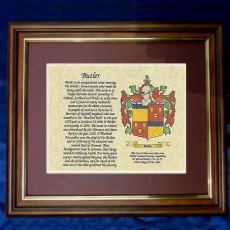 Parchment Prints: Framed, Unframed, Perfect  |
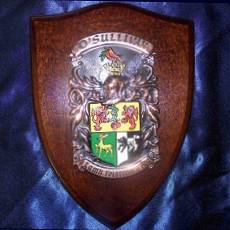 Researched Hand-Painted Plaques & Shields  |
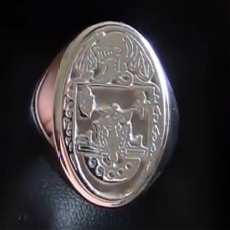 Incredible Hand-Engraved Signet & Seal Rings  |
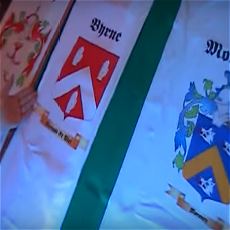 Get your Family Crest Flag, on Ireland or White background!  |
 Personalized Coffee Mugs Make Thoughtful Personalized Gifts  |
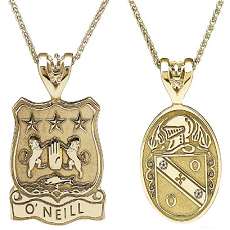 Engraved Pendants in Gorgeous Gold or Stylish Silver.  |